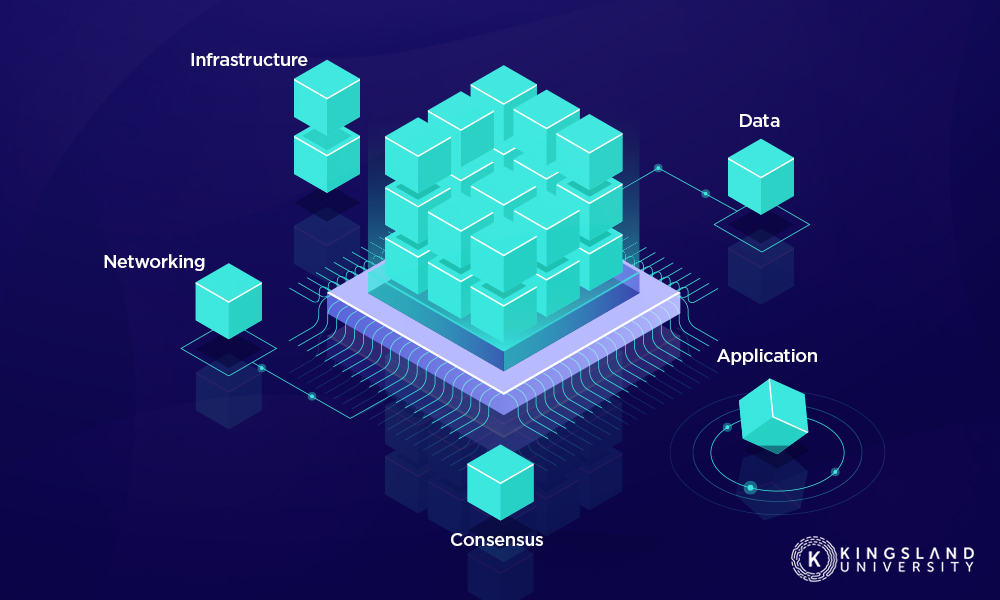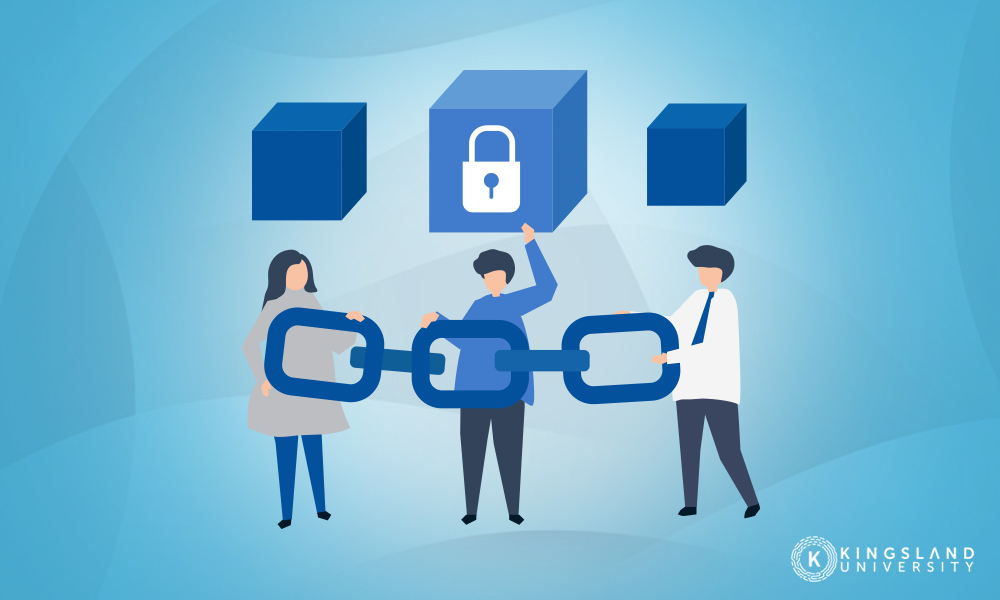
As we have advanced technologically, we have also attempted to revolutionize how our systems operate and how programs respond to data input. Databases have grown and evolved to handle countless new tasks while keeping data in the sequence of when it was added. This database type is known as a blockchain database. You might be wondering what blockchain is. Well, we hope to answer that very question with this article.
What is Blockchain?
Blockchain databases are decentralized public ledgers made up of several “blocks” of records that are added to the whole of the database in chronological sequence. The focus is to record transactions across multiple machines to prevent any form of tampering with the records after the transaction has been processed and logged. Any change to one block results in all other blocks being altered in the same way, meaning any attempts to tamper with records are prevented. This functionality allows individual parties to verify information regularly and inexpensively and authenticate that the records are accurate. Blockchains themselves consist of several layers:
- Infrastructure
- Networking
- Consensus
- Data
- Application

Blockchain databases originated in 1982 when cryptographer David Chaum wrote a dissertation on computer systems and proposed a blockchain-like protocol. The concept was further refined in 1991 by Stuart Haber and W. Scott Stornetta, who sought to implement a system that prevented document timestamps from being altered in any way. The first effective blockchain database was created by a Japanese man operating under the pseudonym Satoshi Nakamoto in 2008.
The uses of blockchain databases vary and present several professional benefits:
- Smart Contracts: A smart contract based on blockchain systems allows the execution and enforcement of official contracts autonomously and without human oversight.
- Financial Services: Blockchain systems have been explored by financial institutions such as banks to implement distributed ledgers and are currently looking into creating private blockchains.
- Energy Trading: Blockchain has seen minimal use in peer-to-peer energy trading.
- Supply Chain: Blockchain databases have been used by industries to maintain supply chains for several reasons.
- Mining supply chains allow vendors and buyers alike to track the origin of gemstones.
- Food supply blockchains allow for verification of the provenances of food in both stores and restaurants.
- Shipping blockchains allow retailers to monitor the shipment status.

Blockchain databases have risen in prominence and popularity in recent years, with Nakamoto’s contribution in 2008 cementing their use as a beloved database system. However, learning how to create and manage such databases is another matter, albeit one that can be solved through attendance at an accommodating university.
Online Blockchain Programs

As with all educational majors and minors, educational facilities offer a complete curriculum entirely online. This allows you to learn about blockchain from the same computer you will be using to interact with and manage it for your personal needs. There are several major schools that offer degrees in the blockchain that can help you learn what you will need.
- Amity University Online: A school in India that offers certification courses in Blockchain Technology & Management and Blockchain Management.
- Austral University: A school in Argentina offers a Spanish-only course in Blockchain Disruption.
- Dalhousie University: A school in Canada that offers certification for blockchain.
- Duke University: A school in the United States of America that offers Entrepreneurial Finance, FinTech Law & Policy, and Blockchain Business Models courses as well as a certification for Blockchain Applications.
- EU Business School: A school in Switzerland that offers a degree plan for an MBA in Blockchain Management.
- Harvard University: A school in the United States of America that has courses in Introduction to Blockchain & Bitcoin and Breakthrough Innovation with Blockchain Technology and offers certification in FinTech.
- Hong Kong University of Science & Technology: A school in Hong Kong that offers courses in FinTech Security, FinTech Risk Management, FinTech Disruptive Innovation, and FinTech Foundations & Overview and a specialization course in FinTech Industry Transformation & Regulation.
- ‘IEBS’ Digital School: A school in Spain that offers a postgraduate diploma plan in blockchain as well as a degree plan for master’s degrees in Blockchain & FinTech but only for Spanish speakers.
- IIIT Bangalore: A school in India that offers a postgraduate diploma plan in Software Development for blockchain and a postgraduate certification in Blockchain Technology.
- IIT Kanpur: A school in India that offers a certification course in Introduction to Blockchain Technology & Applications.
- IIT Kharagpur: A school in India that offers a certification course in Blockchain Architecture Design & Use Cases.
- IIT Madras: A school in India that offers a certification course in Software Engineering for blockchain.
- Imperial College London: A school in England that offers a course in FinTech Program.
- IMT Ghaziabad: A school in India that offers a certification course in Blockchain Technology Management.
- INSEAD: A school in France that offers courses in Transacting on the Blockchain, Introduction to Blockchain Technologies, Introduction to Blockchain for Financial Services, Blockchain Transformations of Financial Services, Blockchain in Financial Services, blockchain Opportunity Analysis, Blockchain Cryptoassets & Decentralized Finance, and Blockchain & Business as well as specialization courses in Blockchain Revolution and Blockchain Revolution in Financial Services.
- International University of La Rioja: A school in Spain that offers a course in Blockchain Applied to Business for a degree and a certification in Blockchain Application Development.
- Liverpool John Moores University: A school in England that offers a degree plan for an MS in Computer Science that specializes in Blockchain.
- London School of Economics: A school in England that offers a specialization course in Cryptocurrency & Disruption.
- Loyola Marymount University: A school in the United States of America that offers courses in Blockchain Foundations & Frameworks, Blockchain Cases, and Blockchain & Industry.
- Massachusetts Institute of Technology: A school in the United States of America that offers courses in Blockchain Technologies and Blockchain Ethics as well as a certification in Digital Transformation.
- Miguel de Cervantes European University: A school in Spain that offers a degree plan for a master’s degree in Applied Blockchain for Spanish-speaking students.
- Moscow Institute of Physics & Technology: A school in Russia that offers a course in Introduction to Blockchain Technology.
- Ngee Ann Polytechnic: A school in Singapore that offers a course in FinTech.
- Polytechnic University of Catalonia: A school in Spain that offers a degree plan for a master’s degree in Blockchain & Business Applications for Spanish speakers.
- Pontifical Xavierian University: A school in Colombia that offers a course in Blockchain Technology Fundamentals.
- Portland State University: A school in the United States of America that offers certification courses in Business Blockchain.
- Princeton University: A school in the United States of America that offers a course in Bitcoin & Cryptocurrency Technologies.
- Ramon Llull University: A school in Spain that offers a certification course in Innovation in Finance for Spanish speakers.
- RMIT University: A school in Australia that offers courses in Developing Blockchain Strategy and Designing Blockchain Solutions and certification courses in Emerging Technologies & Law and Blockchain-Enabled Businesses.
- Rutgers University: A school in the United States of America that offers a course in New Technologies for Business Leaders.
- Ryerson University: A school in Canada that offers a course in Blockchain Risk Management.
- Saxion University: A school in the Netherlands that offers a course in Bitcoin.
- SP Jain School of Global Management: A school in India that offers a certification course in FinTech.
- Stanford University: A school in the United States of America that offers courses in Blockchain & Cryptocurrency.
- Universidad Europea: A school in Spain that offers a degree plan for a master’s in FinTech & Blockchain for Spanish speakers.
- University at SUNY – Buffalo: A school in the United States of America that offers courses in Smart Contracts, Decentralized Applications, Blockchain Platforms, and Blockchain Basics and a specialization course about blockchain.
- University Canada West: A school in Canada that offers a certification course in Blockchain Entrepreneurship.
- University College London: A school in England that offers courses in Blockchain & Distributed Ledger Technology and a certification course in UCL Blockchain Rules.
- University of Alcalá: A school in Spain that offers degree plans for a master’s in Blockchain, Smart Contracts & Cryptoeconomics or Blockchain Engineering or a global masters in Blockchain Technologies.
- University of California, Berkeley: A school in the United States of America that offers courses in Blockchain Technology and Bitcoin & Cryptocurrencies and a certification course in Blockchain Fundamentals.
- The University of California, Irvine: A school in the United States of America that offers courses in blockchain, The Merkle Tree & Cryptocurrencies, Cryptography & Hashing Overview, and The Blockchain System and a specialization course about blockchain.
- University of Cape Town: A school in South Africa that offers courses in Start Up Your FinTech Future, Financial Regulation & FinTech Companies, Entrepreneurs in Emerging Markets & Blockchain Technology, Building FinTech Startups in Emerging Markets, a specialization course in FinTech Startups in Emerging Markets, and a certification course in Disruption in Finance.
- University of Geneva: A school in Switzerland that offers a certification course in Advanced Studies in Blockchain & DLT.
- University of Hong Kong: A school in Hong Kong that offers courses in Introduction to FinTech, FinTech Ethics & Risks, and Blockchain & FinTech Applications and a certification course in FinTech.
- University of Nicosia: A school in Cyprus that offers courses in Security Token Strategy, Blockchain Regulatory Academy, Blockchain Law, Applied Forecasting, and Introduction to Digital Currencies, certification courses in Blockchain Financial Analyst, Blockchain Business Analyst, and Blockchain Developer Certification, and degree plans for an MS in Computer Science and Digital Currency.
- University of Oxford: A school in England that offers a certification course in Blockchain Strategy.
- University of Pennsylvania: A school in the United States of America that offers a course in Cryptocurrency & Blockchain and a specialization course in Foundations & Applications of FinTech Specialization.
- University of Salamanca: A school in Spain that offers degree plans for a master’s or diploma plans for an expert’s in either FinTech or Blockchain & Smart Contracts for Spanish-speakers.
- University of Technology Sydney: A school in Australia that offers a course about blockchain.
- University of the Cumberlands: A school in the United States of America that offers a degree plan for an MS in Global Business with Blockchain Technology.
- University of Zurich: A school in Switzerland that offers a course in Deep Dive into Blockchain.
- Wayne State University: A school in the United States that offers a certification course about blockchain.
- York University: A school in Canada that offers certification courses in Full Stack Blockchain Developer, Master Blockchain, Back-End & Blockchain Development, and Blockchain Development.
- Zigurat Business School: A school in Spain that offers a course in Blockchain Essentials.
As you can see, there is no shortage of facilities that offer online education into blockchain and its associated fields. Understanding finances is crucial to the cryptocurrency domain, and these programs help you manage how to operate blockchain databases in the field.
Alternatives
If an online course is not something you find ideal or you simply prefer an actual classroom setting, there remain several options for such programs. Many of the schools listed above, especially in the United States, offer in-person courses for the same or similar material that can help expand your knowledge and understanding of blockchain. There are also plenty of other schools that provide the same services.

There is no “right way” when it comes to blockchain education except the way that makes the most sense to you. So, pursue the educational style that suits you and the school that calls to you.
The Final Byte
Blockchain is a unique and atypical database system that allows for independent data storage, keeping things in a chronological sequence. It can be simple to use for anyone who has been sufficiently educated in its use and serves an invaluable use when seeking to create a tamper-free record system. If online courses do not suit your educational needs, it is viable to seek out education in person as well.

Blockchains have benefits that standard databases simply lack, allowing the comfort of knowing that the data cannot be tampered with and is easily verified. Be it the monitoring of shipments or the verification of financial transactions. Learning about blockchain systems can only help you in the long run. Ultimately, the understanding of blockchain boils down to pursuing and fulfilling the education so you can maximize your understanding and skill at their development and management.


